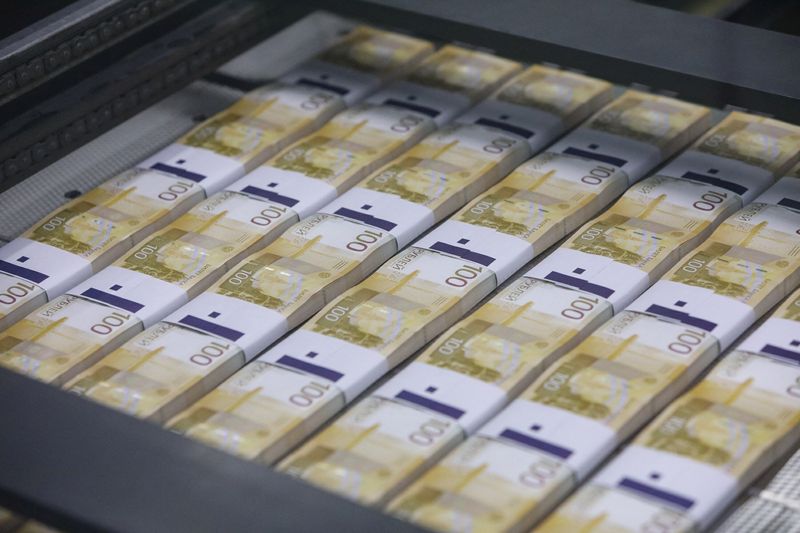MOSCOW (Reuters) -The Russian rouble gave up early gains on Thursday to plunge to over two-week lows in volatile trade, pressured by the end of a favourable tax period and by expectations the government may try to curb the currency's recent strengthening.
Thursday marks the deadline for income tax payments that help support the rouble. This could see exporters cut back on selling their foreign currency earnings, although Russia's strong current account surplus may shield the rouble from any significant weakening.
The rouble is also under pressure amid market expectations the government may take steps to counteract the currency's recent strength, an issue that has concerned officials as it dents Russia's income from commodity exports.
By 1342 GMT, the rouble was 1.9% weaker against the dollar at 61.03 and had lost 2.1% to trade at 62.02 versus the euro, reaching its lowest point since July 11 against both currencies.
The worldwide economic slowdown, high global interest rates, a strong dollar and the impact of sanctions on Russia's economy, all threaten declines in exports, productivity and efficiency, while creating conditions for rouble weakening, said Dmitry Polevoy, head of investment at Locko-Invest.
"But without a budget rule, this will not happen quickly," Polevoy said. "Short-term we still see potential for rouble weakening, expectations for the end of the year are 65-70/USD."
The market is anticipating news that the government will soon tweak and reinstate Russia's budget rule that diverts excess oil revenues into its rainy-day fund with a new cut-off price.
ROUBLE STRENGTH
Analysts had said the rouble may recover to as strong as 57 or 58 against the greenback on Thursday amid high oil prices and after the U.S. Federal Reserve raised its benchmark rate by an expected 75 basis points on Wednesday.
The rouble is the world's strongest-performing currency so far this year, boosted by measures to shield Russia's financial system from Western sanctions imposed after Moscow sent troops into Ukraine on Feb. 24. These include restrictions on Russian households withdrawing foreign currency savings.
But despite a strong rouble, Russia's economic outlook remains gloomy.
The federal statistics service published data late on Wednesday that said industrial output, real disposable incomes and retail sales all fell in year-on-year terms, although the unemployment rate stayed at a record low.
OIL SUPPORT
Stronger oil prices, which hit their highest since early July, could help the rouble win back recent losses, said Banki.ru analyst Bogdan Zvarich.
Brent crude, a global benchmark for Russia's main export, was up 1.4% at $108.2 a barrel.
"There are no fundamental reasons for the significant weakening of the rouble - demand for foreign currency from importers and the population is still unable to outweigh the supply of foreign currency from exporters," Zvarich said.

Russian stock indexes were down.
The dollar-denominated RTS index was down 2.1% to 1,129.2 points. The rouble-based MOEX Russian index was 0.4% lower at 2,187.9 points.